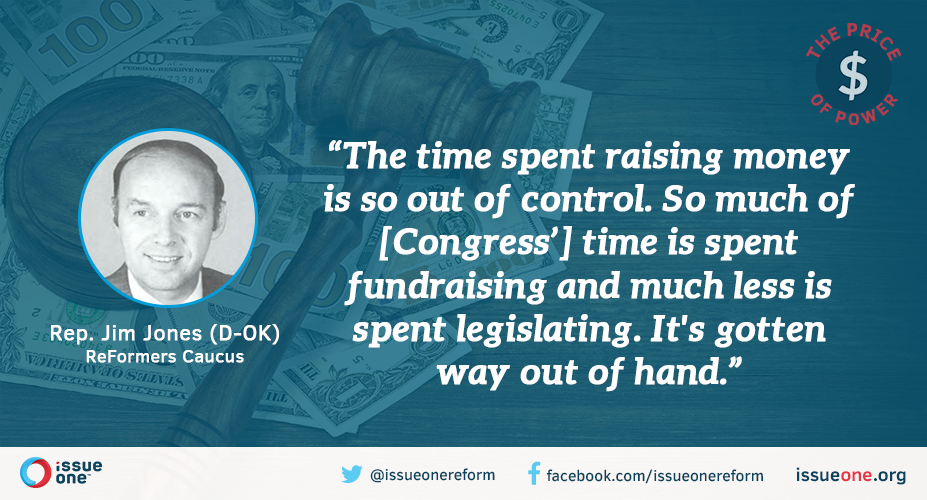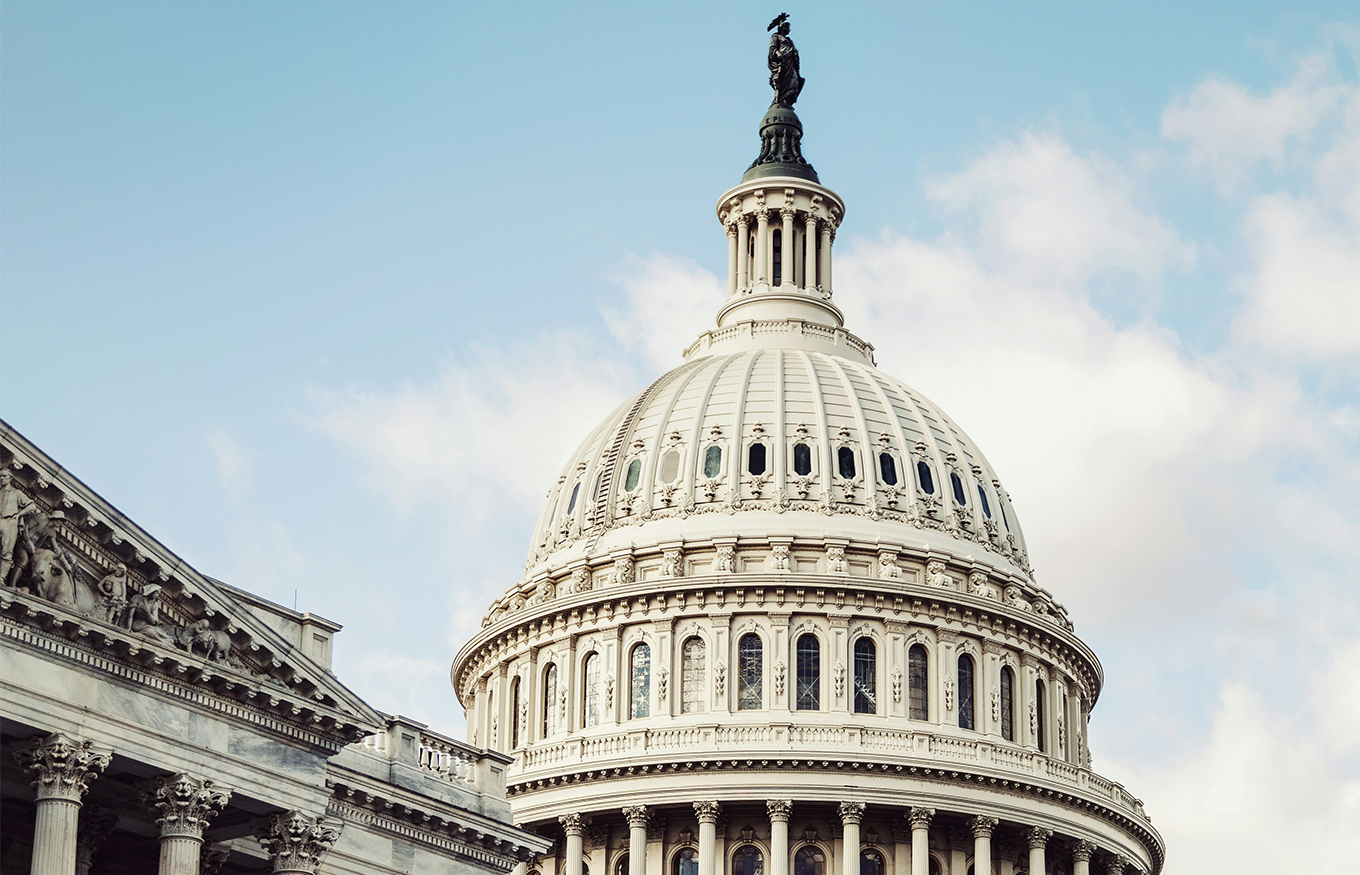To help inform Issue One’s landmark report, “The Price of Power,” we interviewed several members of our bipartisan ReFormers Caucus at-length about their experiences with fundraising and concerns with the “committee tax” imposed on lawmakers.
Every Tuesday and Thursday over the next few weeks, we will release edited excerpts of those conversations with these former lawmakers to supplement and expand on the disturbing picture the report painted: that of a broken democracy, which Congress itself must act to fix.
***
Jim Jones, a member of Issue One’s ReFormers Caucus, is a Democrat who represented Oklahoma’s 1st Congressional District in the U.S. House of Representatives from January 1973 until January 1987. He went on to serve as U.S. ambassador to Mexico from August 1993 until July 1997. He also served as White House appointments secretary under President Lyndon B. Johnson.
What was your experience with the role of fundraising and committee assignments?
It was much different then. There was no kind of discipline on party members to contribute any certain amount to the DCCC. It was done if you were able to do it. But there was no retribution if you couldn’t. I came from a district that was heavily Republican, and I didn’t have a whole lot of money to spare to give around. But I did help colleagues with their fundraising, doing appearances and things like that.
How were committee chairmanships determined?
In those days, the seniority system was still in place. Once you got on a committee, unless you really were a bad character, you stayed in that seniority spot. If you could outlive the one senior to you, you became chairman — for everything except the Budget Committee.
How much time did you spend fundraising?
It was a totally different system, and we didn’t have to spend so much time on elections or on raising money. That started changing just about the time that I left Congress in 1986.
What kind of changes?
Well, I was talked into running for the Senate, which was not anything that had been on my radar screen. I remember Al Gore calling me and saying, ‘Give half of your time from now until the election, at least half your time, just to raise money.’ It was incredible. I had never had to do that before. That was sort of the start of 24-month election cycles, and you started raising money right after your last election.
How did you see partisanship playing out in Congress?
In the 1970s, when I was a junior member, we could cross the aisle, cross party lines and put together coalitions. Then in the 1980s, things became much more partisan. That’s partly because, in Ronald Reagan’s first year as president, there was a very partisan showdown on budget, tax and reconciliation bills.
What do you make of the fact that members of Congress these days spend so much time fundraising?
The time spent raising money is so out of control. So much of their time is spent fundraising and much less is spent legislating. It’s gotten way out of hand. I’ve talked to some of my former colleagues who are in Congress, and one of them really shocked me by saying, ‘You know, in the past, we used to analyze particular issues in terms of what’s best for my district and what’s best for the country, and now my first question is: “What do my major contributors feel about this?”’ I think that’s very, very unfortunate.
What’s your take on how that plays out for members of Congress who serve on the so-called “A” committees like Ways and Means?
On those committees, like Ways and Means, they are expected to kind of use the threat of legislation that goes through their committees to raise money. A lot of people throw around the word ‘corrupt,’ and I use that word very sparingly. But I think the system has become corrupt in the fact that money is becoming the major factor in a congressman’s decision-making.
Do you think it’s unhealthy or problematic that the committee chairs are being asked to raise so much money?
Well, I think it’s unhealthy that all members of Congress have to raise so much money. And if the leadership of the Congress is required to raise even more money, I think that makes the connectivity between big money and public policy more tenuous and more corrupt.
What exactly do you mean by that?
Basically, if I’m a committee chairman, and I have to raise, say, five times what I’d have to raise for my own re-election, that requires big money coming in. And big money doesn’t come in casually. It wants to have its point of view prevail, whether it’s to block legislation or to promote legislation. Therefore, big money becomes more of the driving force in public policy than it should be.
What message do you think all this fundraising sends to the public?
I can understand why there are so many people who are so disaffected and disgusted with the political system. They really feel that they don’t have a voice — that the ‘bigs,’ whether it’s money or institutions or what have you, are running the show. That’s dangerous for a democracy.
What caused you to become a supporter of reforming money-in-politics issues?
A combination of things. Seeing how much time it takes for the members of Congress themselves to raise the money they need and the influence that has. Hardly a day goes by that I don’t get at least a couple fundraising letters. They just keep coming and keep coming. I just think this is out of hand.
Former Rep. Jim Jones (D-OK) is a member of Issue One’s ReFormers Caucus, the largest bipartisan coalition ever assembled on behalf of political reform and government ethics. Read more about “The Price of Power” here.






